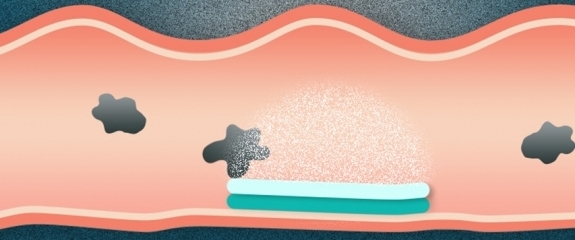Long-Term Drug Release

Researchers from MIT and Brigham and Women’s Hospital have designed a new type of pill that, once swallowed, can attach to the lining of the gastrointestinal tract and slowly release its contents. The tablet is engineered so that one side adheres to tissue, while the other repels food and liquids that would otherwise pull it away from the attachment site.
Such extended-release pills could be used to reduce the dosage frequency of some drugs, the researchers say. For example, antibiotics that normally have to be taken two or three times a day could be given just once, making it easier for patients to stick to their dosing schedule.
“This could be adapted to many drugs. Any drug that is dosed frequently could be amenable to this kind of system,” says Giovanni Traverso, a research affiliate at MIT’s Koch Institute for Integrative Cancer Research, a gastroenterologist at Brigham and Women’s Hospital, and one of the senior authors of a paper describing the device in the April 6 issue of the journal Advanced Healthcare Materials.
Robert Langer, the David H. Koch Institute Professor and a member of the Koch Institute, is also a senior author of the paper. The paper’s lead author is Young-Ah Lucy Lee, a technical assistant at the Koch Institute.


